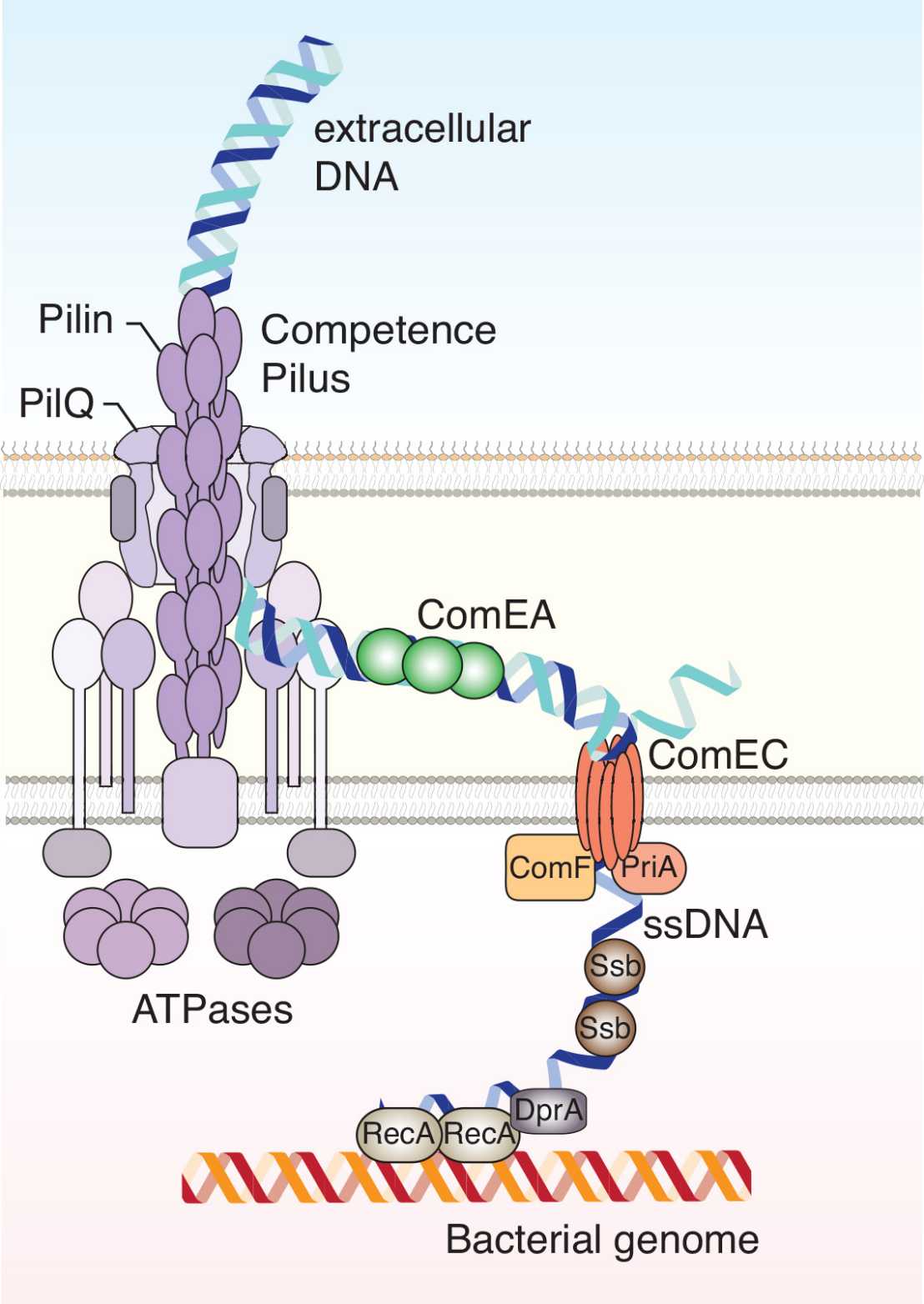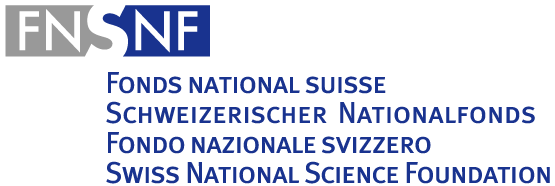PhD and Master's Projects

The process of natural transformation involves the uptake of extracellular DNA, its transport into the cytoplasm and its integration into the bacterial genome by homologous recombination. In Gram-negative bacteria, DNA has to cross the outer membrane (OM), the peptidoglycan layer and the inner membrane (IM). Most Gram-negative bacteria utilise the type IV pilus machinery for the OM translocation step, which occurs by an unknown mechanism. From there, a periplasmic protein (ComEA), binds to double stranded DNA and delivers it to a dedicated IM channel (ComEC). One strand is degraded by an unknown mechanism, while the other strand is transported through ComEC with the help of the cytoplasmic proteins PriA and ComF. The machinery responsible for IM transport is conserved amongst both Gram-negative and Gram-positive bacteria, yet none of the components are understood mechanistically. Our focus is on Legionella pneumophila as a model Gram-negative organism, which will allow us to learn more about the specific processes employed by Legionella, but will also inform us about the general mechanisms of natural competence in Gram-negative bacteria.
PhD and Master's projects will involve biochemical, structural and functional characterisation of the DNA uptake and translocation steps.

